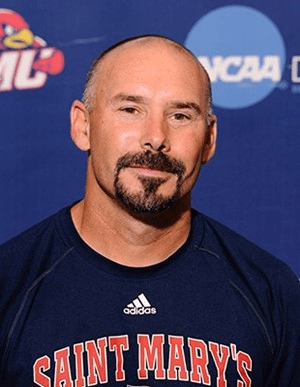MCAC executive director promotes importance and value of community college athletic programs
By Grace Castleberg
Sports Editor
Grace.Castleberg2641@mb.rctc.edu
The Minnesota College Athletic Conference (MCAC) serves campuses all across the state, dictating rules and administrating athletic programs for two-year institutions in the Minnesota State system. It’s main office, however, is permanently located here, at RCTC.

Peter Watkins
Peter Watkins, the executive director for the MCAC, sat down with the Echo to discuss his involvement with the MCAC.
“My position covers anything from proofreading an article about volleyball to calling a president to talk about something that happened in a game,” he explained. “It’s a really broad range of duties, which I really enjoy because you get to work on a lot of different scales and interact with a lot of different people.”
While Watkins holds a strong leadership position with the MCAC, the organization is headed by a committee. On a day-to-day basis, Watkins handles the details, the “nuts and bolts” of managing the organization. However, when a major event occurs, such as a team forfeiting due to a lack of players, he reports to the committee. Together, they work to find the right solution, giving committee members a voice in important decisions.
“It’s a checks and balances system,” Watkins said, “and I respect it and appreciate it a lot.”
Some of the activities the MCAC manages are scheduling both home and away games as well as national championships for the member colleges.
“We exist because we administer athletics for Minnesota State,” Watkins explained.
The MCAC also establishes rules and policies for the participating athletic programs. Their role, Watkins explained, is to be a “one-stop shop” for administrating, and to provide a means for recognizing successful athletes. Specifically, the MCAC provides All-American and All-Conference recognitions to qualifying student athletes.
Watkins feels it’s important to recognize what’s happening within the league. RCTC students, like most community college athletes, don’t receive scholarships to play sports. It is essential to recognize the effort they put in and how the athletes apply themselves to represent the school, while also attending classes, maintaining grades and often working.
“Our student athletes are like every other student,” Watkins said, “except that they don’t have the advantages student athletes at four-year institutions would have.”
Increasing recognition is one of the MCAC’s biggest goals, and is a personal goal for Watkins. He hopes to build a recognition and understanding in the communities of the conference colleges which recognizes the value of the athletic programs they offer.
“We are trying to promote not only RCTC,” continued Watkins, “but also all two-year schools.”
His hope is to break the barrier holding back many two-year athletic programs, which is a lack of recognition for the team. Fans know the players, but don’t know the league. Watkins hopes to demonstrate through promotion of conference teams and events that the two-year sports teams and leagues should not be overlooked in favor of four-year schools.
At the same time, the number of MCAC schools and sports are growing. Currently there are 3 schools that are not Minnesota State members who have joined the conference: Dakota College in Bottineau, ND, North Dakota State College of Science in Wahpeton, ND, and Western Technical College in La Crosse, WI.
“We are trying to grow,” Watkins said “We have some other schools that we are in talks with about joining.”
Currently, the conference sports are as follows: football, volleyball, soccer, basketball, wrestling, golf, baseball, and softball. However, a recognition for trap shooting of clay targets is becoming prominent. To recognize this, the MCAC hopes to add it as a conferences sport in the fall of 2018.
Watkins reported the MCAC also hoped to grow their existing athletics, increasing the number of schools in their membership who will offer the recognized conference sports.
Making all this happen, of course, will require community involvement and support from campuses. One way this can be accomplished is by helping the MCAC spread the word about two-year athletic programs as a volunteer, employee, or intern. Opportunities are available for students to participate with the MCAC in journalism, photography and other public relations areas.
Watkins stressed that the conference is always looking for help getting photo coverage of games and that many unique stories of their student athletes go unnoticed because of a lack of media attention, providing plenty of opportunity for students interested in writing, journalism or sports to build their resumes.
Interested students can contact Peter Watkins at peter.watkins@anokaramsey.edu.
